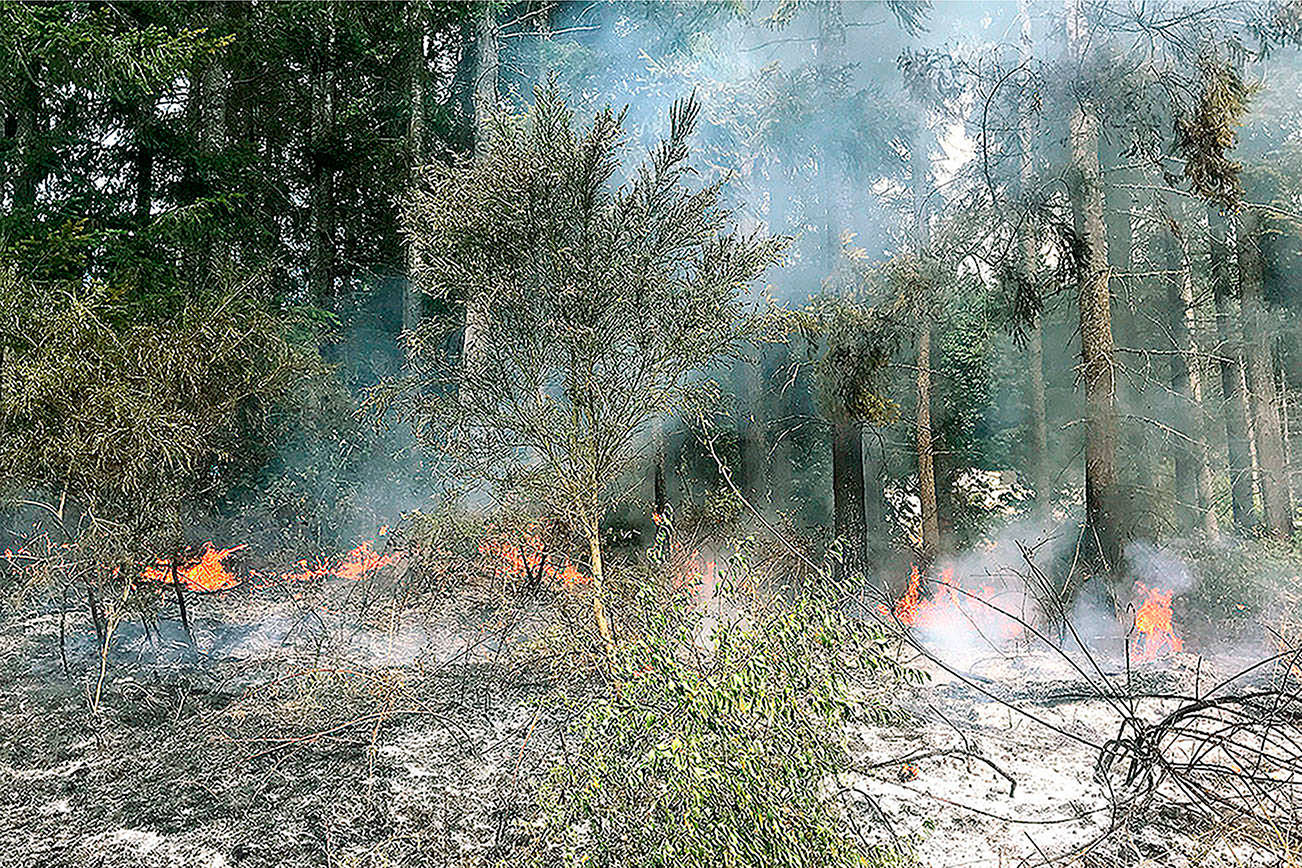Kitsap County seems to have avoided an increase in brush fires this summer but the time to be concerned about such outbreaks is coming, officials say.
“Traditionally, our fire season begins now and goes through mid-September,” Central Kitsap Fire and Rescue Chief John Oliver said. “This is due to low humidity and afternoon winds — prime conditions for rapid-fire growth.”
While the number of 9-1-1 fire calls has not been high countywide yet, Oliver would not characterize 2021 as a normal fire year.
“Fire fuels [tree and underbrush] have dried out more than normal from the extreme heatwave the area recently experienced. We get nervous this time of year,” Oliver said.
The region’s drier than normal vegetation can lead to more serious fires, North Kitsap Fire and Rescue Fire Chief Dan Smith said.
“The frequency of calls may not be higher, but when we do have a brush fire, they grow at a faster rate,” Smith said.
Smith reported that his department experienced a number of close calls.
“We had fires along Highway 303 that were serious due to their proximity to homes,” Smith said. “Fortunately, due to a lack of high winds, we were able to jump on them quickly.”
Kitsap County has not escaped expansive wildfires. One of the region’s largest took place near Horseshoe Lake in South Kitsap, which scorched 20 acres.
South Kitsap Fire and Rescue was the primary responder. Due to the size of the burn, units were called in from North and Central Fire and Rescue, as were firefighters from Poulsbo, Bainbridge Island, Bremerton and some from out of the county, said Josh Hurguy, SKFR’s deputy chief of emergency services.
“We were able to build a firewall around it and contain it,” Hurguy said.
No structures were damaged. Most brush fire calls this summer have been one-unit calls of short duration, Hurguy said.
Burn ban
Kitsap County is under a Phase 2 burn ban.
All outdoor recreational burning in unincorporated areas of Kitsap County is barred under the July 10 ban. No outdoor fires are allowed except in free-standing barbecue appliances using natural gas or propane fuel. Barbecue appliances should be placed on hard non-combustible surfaces, according to the county Fire Marshal’s office.
Typically, burn bans are not lifted until fall when the rains return.
Preventative steps
To reduce the chance of a brush fire, guidance is offered on the CKFR’s website: www.ckfr.org.
If a home is adjacent to forest land or vegetation, the property owner is advised to create a 30-foot barrier of cleared space around structures, according to the website. Prune or remove combustible trees or shrubs that are close to the house. Do not store combustibles, such as woodpiles, under the deck or near the home.



